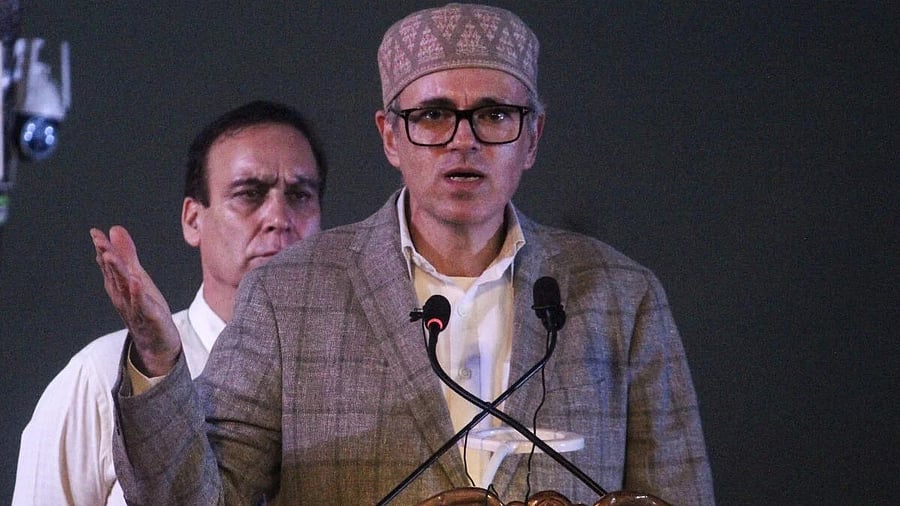
Jammu and Kashmir Chief Minister Omar Abdullah.
Credit: PTI Photo
Srinagar: Jammu and Kashmir Chief Minister Omar Abdullah, nearing his one-year mark on October 16, 2026, increasingly speaks and acts like an opposition leader rather than the head of government, exposing the gap between his ambitious pre-poll promises and the ground realities of governance in Jammu and Kashmir.
Six months after the Pahalgam terror attack, he slammed the continued shutdown of tourist spots, despite the Lieutenant Governor reopening 16 destinations. Similarly, he condemned the LG administration for allegedly “stopping” opposition leaders Mehbooba Mufti and Sajad Lone from visiting the family of former Hurriyat chief Prof Abdul Gani Bhat, who passed away last week.
On the economic front, Omar’s statements on the NH-44 blockade where Kashmiri apples have rotted and prices have crashed by 40 per cent highlight the reactive, rather than proactive, nature of his leadership.
He urged the Centre to hand over control of the highway to the J&K administration and called for “concrete steps within 24 hours,” sounding more like a public spokesperson for aggrieved citizens than a Chief Minister with executive authority.
Critics argue that Omar’s public posture reflects both the structural limitations of Union Territory governance and a political strategy that seeks to deflect accountability.
“While he has the constitutional authority of a chief minister, real power especially in security, infrastructure, and administrative decision-making rests with the Lieutenant Governor. Yet the NC leader’s repeated public critiques expose a government paralysed by indecision and inaction,” political analyst Prof Gul Mohammad Wani told DH.
Omar’s predicament is compounded by the unfulfilled promises of the NC’s 2024 “12 Guarantees” poll manifesto. These pledges including restoration of Article 370, full statehood, and implementation of the 2000 autonomy resolution remain largely unrealised.
Instead of taking ownership of the government’s limited mandate, Omar has opted for a narrative of grievance, portraying himself as a champion of people’s frustrations while failing to deliver concrete outcomes.
“What we see is a chief minister who talks like the opposition,” Prof Wani said. “He laments problems, criticises the system, and highlights grievances, but provides no roadmap or leadership to solve them. For a year now, this pattern has dominated his tenure.”
As Omar completes his first year, the National Conference (NC) faces mounting questions about credibility, governance, and political strategy. If his government continues to prioritise rhetoric over action, the chief minister risks being remembered less for leadership and more for sounding like the opposition in power a distinction that could carry heavy political costs in the months ahead.